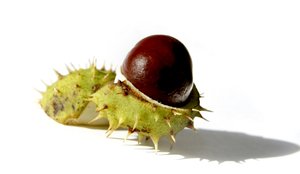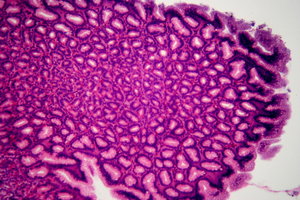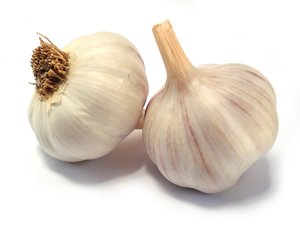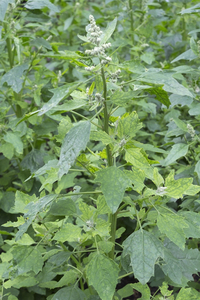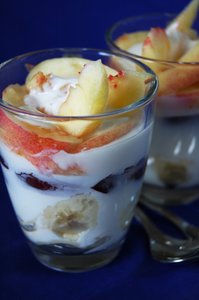
Digestion: At the Forefront of Good Health
by Autumn Pappas, Contributing Writer
Did you know that at least seventy percent of our immune system resides inside our digestive system? Digestive disorders have plagued our society, affecting an astounding 70 million Americans. Our once healthy digestive tracts have become compromised due to infections, undigested food, parasites and the overuse of antibiotics. Unhealthy diets of constant yeasts, carbohydrates and sugars have impaired our mucus lining and created chronic inflammation in our bodies. Chronic inflammation is the root cause of problems like heart disease, high cholesterol, high blood pressure, cancer, diabetes and strokes. Inflammation also affects our cells and damages our organs. With our immune systems so largely dependent upon a flourishing digestive system; we must take control of these issues and fight back.
How can we help our digestive systems? Take a probiotic supplement. Our small intestine contains natural probiotics, or beneficial bacteria, that populate our digestive tract. They fight off invaders like toxins and bad bacteria. Probiotics detoxify our bodies as well. However, when our digestive systems become imbalanced these probiotics diminish; thereby creating holes in our mucus lining. This is known by alternative doctors as “Leaky gut syndrome.” Leaky gut syndrome is apparent when harmful substances inside our bodies are leaked into our blood stream. This can create aches, pains, food sensitivities, gas and bloating.
Contrary to popular belief, yogurt does not contain enough probiotics to fight off bad bacteria for most people. For maximum results, buy a probiotic supplement that needs to be refrigerated and contains billions of microorganisms. There is no one size fits all when it comes to probiotics. What probiotic may work for your body, may not work for someone else’s. Natural forms of probiotics can be found in kefir; a drinkable yogurt. They can also be found in sauerkraut and kimchi; a fermented Asian vegetable mixture.
Additionally, dine on foods containing prebiotics. Prebiotics are natural substances found in food that encourage probiotics to grow. They mostly come from oligosaccharides, or carbohydrate fibers. Prebiotics can be found in many fruits and vegetables like bananas, berries, asparagus, tomatoes and onions. Garlic, honey, legumes and whole grains also carry them.
Consume enzyme rich foods. Enzymes are proteins that speed up chemical reactions. Metabolic enzymes are made in our bodies and are responsible for all of our processes. They literally sustain our bodies and our lives. Enzymes are essential to the digestive process because they help breakdown molecules in our food. Therefore, our bodies can use them as an energy source. Juicing is a great way to take in enzymes since enzymes occur naturally in fruits and vegetables. Papaya, pineapple, nuts, seeds and sprouts are ideal enzyme sources. It should be dually noted that there are only enough enzymes in raw food to breakdown the molecules of that food.
Be conscience and take time to chew food slowly and completely; in order to get the maximum amount of enzymes from that particular food. Furthermore, undigested food can harm the body and cause inflammation.
Our metabolic enzymes diminish at a faster pace than many would think. Our enzymes weaken as we age. For that reason, we cannot depend solely on our bodies to create all the enzymes we need. The best way to solve this ongoing problem is to take an enzyme supplement, in capsule or powder form. Enzyme supplements are extracted from different sources; including plant, animal and microbial. Plant and microbial enzymes are optimal because they are supportive to pH levels and they are not easily affected by stomach acids. In order to assist with the breakdown of fats and carbohydrates choose a supplement that contains a mix of different enzymes. Pay attention to the potency of the product you are purchasing, as different products contain varied amounts of enzymes. To our benefit, enzyme supplements also aid in weight loss.
Inflammation can be counteracted by taking an Omega-3 supplement daily. Omega-3’s boost brain activity and reduce cardiovascular disease. Look for high quality fish oil that contains Omega-3’s, DHA, and vitamin D3. Interject Omega-3 rich foods into your diet like flax seeds, walnuts, beans, olive oil, salmon, tuna and halibut.
Stick to an anti-inflammatory diet by avoiding high fructose corn syrup, sugar, processed foods, saturated fats and partially hydrogenated oils. Limit your intake of animal proteins with the exception of fish. Fill your plate with fruits, vegetables, whole grains and fiber. Use herbs and seasonings with anti-inflammatory values such as turmeric, ginger, cinnamon, rosemary and basil.
Ask your doctor about taking probiotic, enzyme and Omega-3 supplements; to make sure they are right for you. If approved, implement each supplement one by one. A healthy digestive tract is essential for a thriving body and immune system. The abbreviated version of this article appears in the February 2013 issue of the Port Ludlow Voice.
To your health!
Autumn (check me out @ pacificnorthwesthealth.com)


